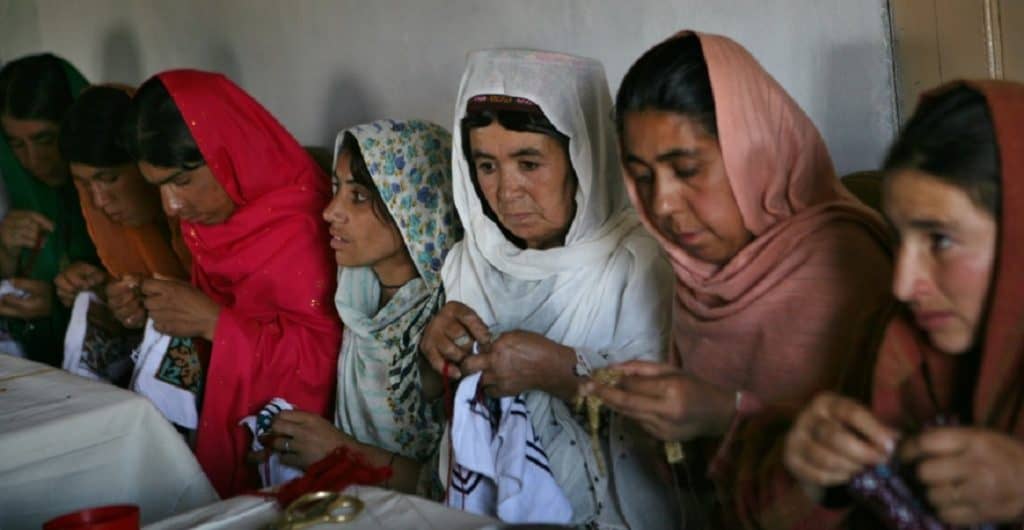By Hafiza Bakhtawar Kurd
There are different societies in which women live as required by society’s standards. In doing so, a woman gives up her desires and her lifestyle; in fact, she does not remind herself and the meaning of womanhood.
In moderate societies, the woman has the predetermined role of being a destitute species: she has no home of her own; if she is a girl or sister, she is considered a burden to her father and brother; and if she is the better half, she is considered a migraine for her significant other. Also, if she is a mother by marriage, she should be considered a villain in the home. The buzz word is, where is she? Is it true that she has a home or that the memorial park will be quiet for her or not?
She lives in ties and keeps quiet, she has no value of her own. Why is it important for her to have a relationship in order to be considered in the eyes of the public? Why do women think about a man’s dignity? Why do women need to hide in a covered area to safeguard public admiration? Why does she stay in a safe place to orient herself in reverse? Can it be said that she is not given the privilege to live as indicated by her desires and cravings? Why do women abide by society’s guidelines to carry out their lives? Why does the woman not make the principles of life that carry her forward her own?
The TrustLaw Foundation asked 213 guidance specialists from five countries to rank the nations based on their overall impression of risk and six dangers: to well-being, sexual brutality, nonsexual nastiness, social or rigid variables, lack of access to goods, and drug dealing. Regarding Pakistan, respondents referred to social, ancestral, and rigid practices harmful to women, including corrosive assaults, child and forced marriage, and discipline or revenge through stoning or other actual mistreatment. More than 1,000 women and young women have consistently been victims of “honor killings,” according to Pakistan’s Common freedoms Bonus. While 90 percent of women in Pakistan experience aggressive behavior in the home.
Inhabitants of Pakistan follow deceitful practices. Some normal threats to Pakistani women include corrosive assaults, constrained or kid relationships, discipline by stoning and aggressive behavior at home. This nation has the highest number of shared murders, honor killings, and early marriages. (New women foundation) Pakistan is positioned by the Worldwide Orientation Hole File 2018 as the sixth riskiest country on the planet for women and the second most terrible on the planet (ranked 148th) for equal orientation. The number of recorded cases of sexual violations and abusive behavior in the home is rapidly increasing. Although Pakistani society discourages revelation, the NGO White Lace Pakistan reports that 47,034 women have faced sexual brutality, about 15,000 cases of honor violation have been recorded, more than 1,800 cases of abusive behavior in the home, and about 5,500 abductions of women occurred between 2004 and 2016. According to media reports, more than 51,241 cases of violence against women were recorded between January 2011 and June 2017. Conviction rates, meanwhile, remain low: only 2.5 percent of all substantiated cases were convicted by the courts (Parliamentary Question).
A woman is attacked in Pakistan like clockwork, according to a new study, which illustrates the risky circumstances for women in the nation where honor killing cases are also widespread. The study, directed by Pakistan Television’s SAMAA Examination Unit (SIU) in light of information collected by the Punjab Internal Land Division and the Fundamental Freedoms Service, also found that while cases of assault of women have increased, the conviction rate has remained at a frightening 0.2 percent, “Newly collected and organized information shows that from 2017 to 2021, 21,900 women were assaulted in the country. This means that about 12 women were assaulted in the country every day, or a woman like clockwork,” the survey states. According to the evaluators, these detailed cases could be just a taste of something bigger, as cultural shame and anxiety about punitive savagery prevent women from disclosing incidents to authorities. Information shows that exactly 3,327 cases of assault were recorded in 2017. In 2020, the Assembled Countries Advancement Program ranked Pakistan first among the 75 nations with an enemy predisposition of women in the courts (NDTV).
Pakistan has also been encouraged by world bodies, including the United Nations, to take action against the growing cases of honor killings in the country. According to information from the Fundamental Freedoms Commission of Pakistan, 1,957 incidents of honor killings have been recorded in recent years, The Express Tribune reports. To conclude I should ask questions that grip my psyche: what is a woman? A human being, a wobbly body, a heavy stone, the currents of a stream, the rising of a sun, the shining of a star, the disruption of the air, the smell of blooms…???
Hafiza Bakhtawar Kurd – Student of BS IR at the university of Balochistan. She is also an independent researcher and a social scientist who is part of the Human Rights Council of Pakistan.
(The views expressed in this article belong only to the author and do not necessarily reflect the views of World Geostrategic Insights).
Image Source: The Borgen Project







